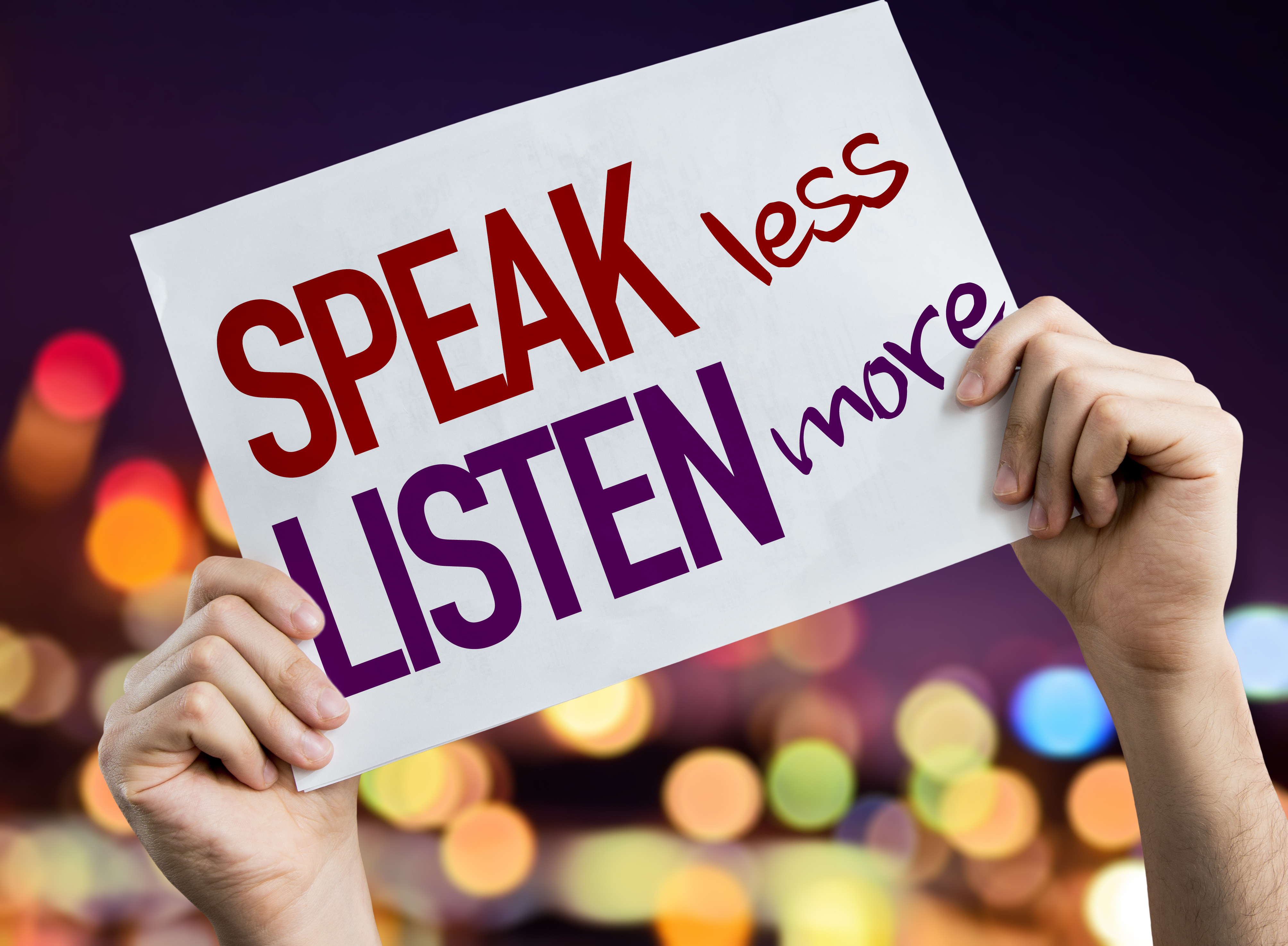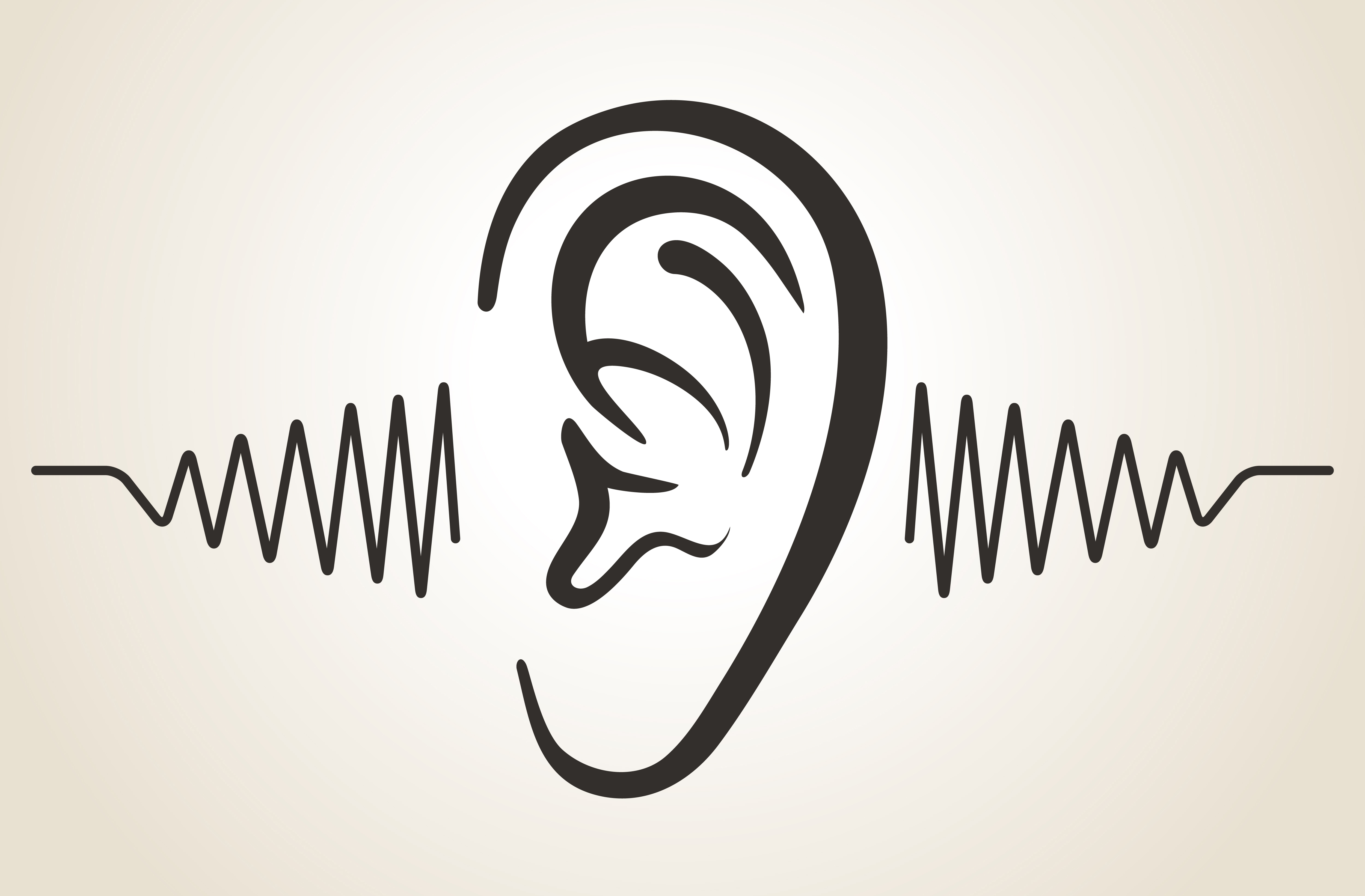Hello! I am Khan Zubaida your writer. Today I am writing about Listening skill. As we all know listening is an activity if someone don't hear us out or cut us in between we feel really bad and never wanna speak to them ever again, of course this is not right behavior. But sometimes we do the same thing unknowingly or unintentionally, this happen when we keep talking without giving chance to another person and we don't even know the reason why they are annoyed.
As we all know we have one mouth and two ears so we should speak less and listen more, do we actually follow this? I am science student so it's necessary for me to listen instructions before performing any practical if I don't do this then I might blast the chemistry lab or don't get the good result and messing up everything so it's mandatory for me to focus and listen carefully. I am mentioning few tips below to exercise our ears with listening skills so that you people won't make those mistakes like me.
What is listening?
To define "listening " we can use some similar term such as "perception, attention, hearing". Perception, has been defined as a process of extracting information from the world outside oneself, as well as from within. Listening is selective perception and attention to auditory stimuli. Words such as "listening" and "hearing" are often used interchangeably in everyday speech, listening is a process that includes selective attention and the assignment of meaning. Physiologically, listening involves the use of hearing organs to receive those acoustic vibrations that are converted into signals that can be understood by the brain. It is the brain that gives meaning to those vibrations. The brain decodes these vibration patterns that are known as "words." Physiologically, listening occurs in waves. There are natural peaks and valleys in the listener's processing of auditory stimuli, and listeners can only comprehend some of the stimuli that they are able to hear.Just as listening has a physiological basis, it also has a psychological basis. The psychological aspects have to do with interest and attention. A person listens to what interests him or her and does not listen to what is found to be boring or dull or irrelevant. Listening is an activity that involves the skills of paying attention, making sense of what is being said (interpretation), and providing feedback or response to the speaker. These skills are learned and they can be improved. Improvement of listening involves correcting the five most frequently found psychological interferences to effective listening: habitual inattention, selective perception, selective inattention, inaccurate inference making, and the inability to frame concepts. Habitual inattention occurs when listeners regularly and consistently find their attention wandering. Selective perception occurs when listeners only perceive some of the things that are being said to them. Selective inattention occurs when listeners listen only to those things to which they want to pay attention. Inaccurate inference making occurs when listeners draw conclusions incorrectly about the meanings of what they have heard. The inability to frame concepts happens when listeners are unable to comprehend or understand what has been said.
When we show we’re really listening, it’s much more rewarding for the person talking to you, and you’ll get more out of it too. This is called active listening, and it can help avoid misunderstanding and reduce the potential for conflict.
Here are 10 easy ways to make your communication more effective and make the other person feel more valued.
1) Face the speaker and have eye contact
Eye contact is an important part of face to face conversation. Too much eye contact can be intimidating, though, so adapt this to the situation you’re in. Try breaking eye contact every five seconds or so, or to show you’re listening attentively, look at one eye for five seconds, then another eye for five seconds, then switch to looking at their mouth. When you look away, looking to the side or up is better than looking down, which can seem like you want to close the conversation.
Check your posture and make sure it’s open – avoid crossed arms or crossed legs, which can make you look ‘closed’ or defensive. Leaning slightly forward or sideways whilst sitting can show that you’re listening – as can a slight tilt of your head or resting your head on your hand.
2) “Listen” to non-verbal cues too
Pay attention to what the other person is saying with their body language
Facial expressions, tone of voice and gestures can tell you just as much as what is being said in words. Pay attention to what the other person is saying with their body language - are they smiling, for example, or are their arms crossed defensively, or are they rubbing their eyes as if they're tired or upset. Even on the phone, you can learn a lot from the other person’s voice, which might sound subdued or upbeat.
3) Don’t interrupt
Being interrupted is frustrating for the other person – it gives the impression that you think you’re more important, or that you don’t have time for what they have to say. If you are naturally a quicker thinker or speaker, force yourself to slow down so that the other person can express themselves. Remember, a pause or a few seconds of silence doesn’t mean that you have to jump in. Letting the other person speak will make it easier for you to understand their message, too.
Even interruptions that respond to something that they’ve said can be distracting if it means the conversation gets sidetracked from what they were trying to tell you about. If this does happen, steer the conversation back to “So, you were telling me about…”.
4) Listen without judging, or jumping to conclusions
If you start reacting emotionally to what’s being said, then it can get in the way of listening to what is said next. Try to focus on listening. Equally, don’t assume that you know what’s going to be said next.
5) Don’t start planning what to say next
You can’t listen and prepare at the same time.
6) Show that you’re listening.
Nod your head, smile and make small noises like “yes” and “uh huh”, to show that you’re listening and encourage the speaker to continue. Don’t look at your watch, fidget or play with your hair or fingernails.
7. Don’t impose your opinions or solutions.
It’s not always easy, but lending a listening, supportive ear can be much more rewarding than telling someone what they should do. When a loved one has health problems is a time when they probably want to tell you how they’re feeling, and get things off their chest, rather than have lots of advice about what they should be doing.
In other areas of life too, most people prefer to come to their own solutions. If you really must share your brilliant solution, ask first if they want to hear it – say something like “Would you like to hear my suggestions?”
8) Stay focused
If you're finding it difficult to focus on what someone is saying, try repeating their words in your head as they say them – this will reinforce what they’re saying and help you to concentrate. Try to shut out distractions like other conversations going on in the room. And definitely don’t look at your phone.
9) Ask questions
Asking relevant questions can show that you’ve been listening and help clarify what has been said.
If you’re not sure if you’ve understood correctly, wait until the speaker pauses and then say something like “Did you mean that x…” Or “I’m not sure if I understood what you were saying about…”
You should also use open questions where you can, like “How did that make you feel?” “What did you do next?”
10) Paraphrase and summarise
Repeating what has been said really shows you’ve been paying attention, and allows the speaker to correct you if you haven’t understood
Sometimes called reflecting, this is repeating what has been said to show that you understand it. This may seem awkward at first, but really shows you’ve been paying attention, and allows the speaker to correct you if you haven’t understood correctly.
If you’re not sure how to do this, try starting a sentence with: "Sounds like you are saying…”
And remember…."Repetition is the mother of skill."
Old habits are hard to break, so you’ll need to make a conscious effort to become an active listener. Try spending a week in which you summarise the main points or outcomes at the end of each conversation or meeting. This will help you get into the habit.
Hoping this will help you. Thank you readers to read my blog.




No comments:
Post a Comment